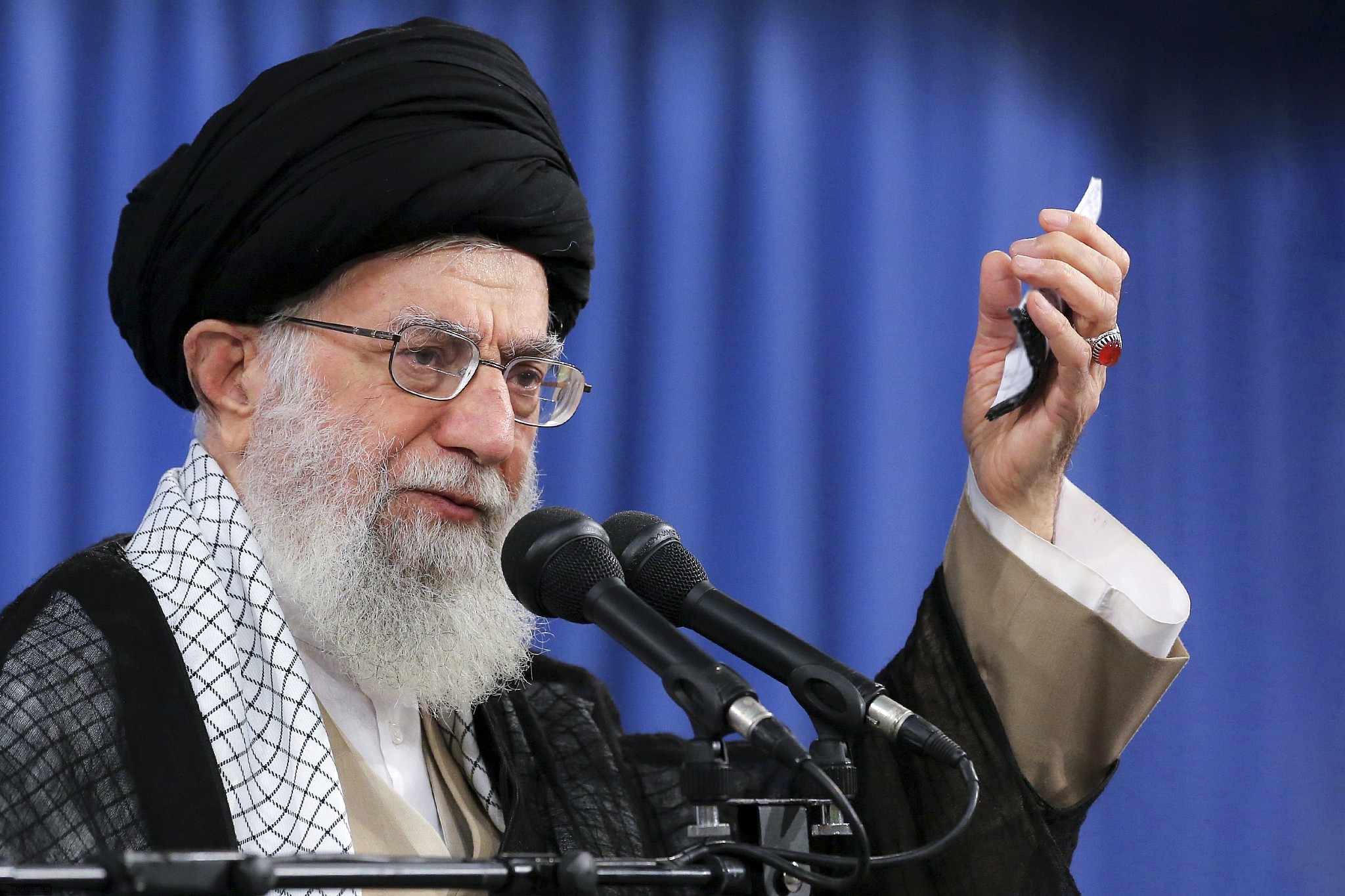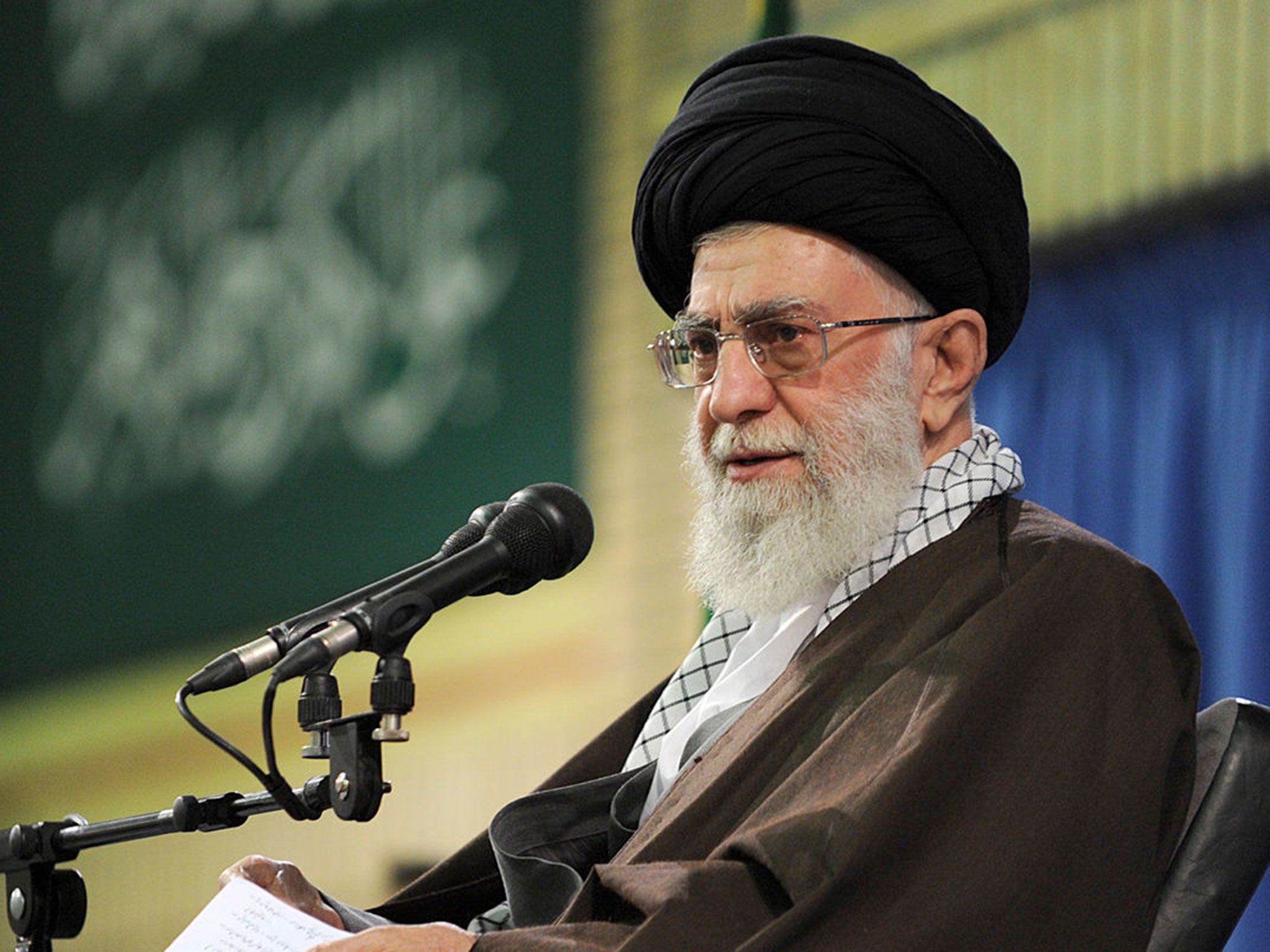Ali Khamenei’s Early Life and Education
Ali Khamenei was born on July 19, 1939, in Mashhad, Iran, to a devout Shia Muslim family. His father, Seyyed Javad Khamenei, was a prominent religious scholar and a descendant of the Prophet Muhammad. Khamenei’s mother, Khadijeh Mirdamad, was also from a religious family.
Khamenei’s early life was shaped by his family’s strong religious beliefs and practices. He began studying Islamic theology and jurisprudence at a young age, and he quickly demonstrated a keen intellect and a deep understanding of religious texts.
Educational Pursuits
In 1959, Khamenei enrolled in the Qom Seminary, one of the most prestigious Shia theological schools in the world. He studied under some of the leading scholars of the time, including Ayatollah Ruhollah Khomeini, who would later become the leader of the Iranian Revolution.
The Supreme Leader of Iran, Ali Khamenei, is a powerful figure in the country. He is responsible for overseeing the government and military, and he has the final say on all matters of state. Recently, Khamenei has been in the news for his use of a helicopter to travel around the country.
This has raised some eyebrows, as it is seen as a sign of extravagance. However, Khamenei’s supporters argue that the helicopter is necessary for him to carry out his duties effectively.
Khamenei excelled in his studies and quickly rose through the ranks of the seminary. He became a respected scholar and teacher, and he also played an active role in the political and social movements of the time.
Khamenei’s Role in the Iranian Revolution
During the Iranian Revolution, Ali Khamenei emerged as a prominent figure, playing a crucial role in mobilizing the masses and shaping the course of events. He became a close confidant of Ayatollah Ruhollah Khomeini, the revolution’s spiritual leader.
Leadership Positions
- Khamenei was appointed the Friday prayer leader of Tehran in 1979, a position that gave him significant influence over public opinion.
- He served as the deputy defense minister in the provisional government of Mehdi Bazargan.
- In 1980, he was elected as a member of the Assembly of Experts, a body tasked with selecting and supervising the Supreme Leader.
Relationship with Ayatollah Khomeini
Khamenei’s relationship with Ayatollah Khomeini was pivotal in his rise to prominence. He was one of the few clerics who consistently supported Khomeini’s call for an Islamic revolution, and he played a key role in disseminating Khomeini’s ideas throughout the country.
Contributions to the Revolution
Khamenei made significant contributions to the Iranian Revolution. He:
- Organized and led mass demonstrations against the Shah’s regime.
- Established a network of supporters across the country, which played a crucial role in mobilizing the masses.
- Served as a spokesperson for the revolution, both in Iran and internationally.
Khamenei’s Supreme Leadership
Following the death of Ayatollah Ruhollah Khomeini in 1989, Ali Khamenei was appointed as the second Supreme Leader of Iran by the Assembly of Experts. As the Supreme Leader, Khamenei holds ultimate authority over Iran’s political, religious, and military affairs.
During his tenure, Khamenei has played a pivotal role in shaping Iran’s domestic and foreign policies. He has emphasized the importance of self-reliance, economic independence, and the promotion of Islamic values within Iranian society.
Domestic Policies
Khamenei’s domestic policies have focused on strengthening Iran’s economy, promoting social justice, and preserving Islamic values. He has supported policies aimed at reducing poverty, increasing employment opportunities, and improving healthcare and education.
- Economic Policies: Khamenei has emphasized the importance of economic self-sufficiency and reducing reliance on foreign imports. He has supported policies aimed at diversifying the economy, developing domestic industries, and promoting non-oil exports.
- Social Policies: Khamenei has promoted social justice and equality as key principles of the Islamic Republic. He has supported policies aimed at improving the welfare of the poor and marginalized, and reducing social disparities.
- Cultural Policies: Khamenei has emphasized the importance of preserving Islamic values and culture within Iranian society. He has supported policies aimed at promoting Islamic education, art, and media.
Foreign Policies
Khamenei’s foreign policies have been characterized by a strong emphasis on anti-imperialism and resistance to Western influence. He has supported policies aimed at strengthening Iran’s regional and international alliances, and promoting Iran’s interests abroad.
Ali Khamenei, the Supreme Leader of Iran, has faced numerous challenges during his tenure. One notable incident was the president of iran helicopter crash in 2005, which claimed the lives of several high-ranking officials. Khamenei has also faced criticism for his handling of the country’s nuclear program and its relations with the international community.
- Anti-Imperialism: Khamenei has been a vocal critic of Western imperialism and hegemony. He has supported policies aimed at resisting foreign interference in Iran and the Middle East.
- Regional Alliances: Khamenei has sought to strengthen Iran’s regional alliances, particularly with countries that share its anti-Western and anti-Israeli stance. He has supported policies aimed at promoting cooperation and unity among Muslim nations.
- Nuclear Program: Khamenei has been a staunch supporter of Iran’s nuclear program, which he views as a deterrent against foreign aggression. He has resisted international pressure to abandon the program, and has emphasized Iran’s right to pursue peaceful nuclear technology.
Khamenei’s tenure as Supreme Leader has been marked by both achievements and challenges. He has played a key role in shaping Iran’s domestic and foreign policies, and has maintained a strong grip on power. However, he has also faced criticism for his authoritarian rule, his suppression of dissent, and his support for Iran’s nuclear program.
Ali Khamenei, the Supreme Leader of Iran, is a powerful figure in the country’s politics and religious life. He has held the position since 1989 and has overseen a number of significant events, including the helicopter crash that killed President Akbar Hashemi Rafsanjani . Khamenei is a controversial figure, but he remains a key player in Iranian politics.
Khamenei’s Influence on Iranian Society

As the Supreme Leader of Iran, Ali Khamenei wields immense influence over the country’s cultural, social, and economic spheres. His policies and initiatives have profoundly shaped the lives of Iranian citizens, leaving a lasting impact on society.
Cultural Influence
Khamenei has played a significant role in shaping Iran’s cultural landscape. He is a devout Shia cleric and has emphasized the importance of Islamic values and traditions. Under his leadership, Iran has witnessed a revival of religious practices and cultural expressions. Khamenei has also supported the promotion of Persian art, literature, and music, fostering a sense of national pride and cultural identity among Iranians.
Social Influence
Khamenei has also had a profound impact on Iranian society. He has advocated for social justice and equality, promoting policies that aim to improve the lives of the poor and marginalized. Khamenei has also emphasized the importance of education, healthcare, and family values, working to strengthen the social fabric of Iran.
Economic Influence
Khamenei’s influence extends to the economic sphere as well. He has overseen the implementation of economic policies that aim to reduce poverty, promote self-sufficiency, and resist foreign economic pressures. Khamenei has also supported the development of Iran’s nuclear program, which has been a major source of controversy and international tension.
Khamenei’s Relationship with Other Countries

Khamenei’s foreign policy is guided by his belief in the Islamic Revolution’s ideology and his interpretation of Iran’s national interests. He views the United States as the primary threat to Iran and the Islamic world and has been a vocal critic of American foreign policy. He has also been critical of Israel and has supported Palestinian resistance to Israeli occupation. Khamenei has sought to expand Iran’s influence in the Middle East and has supported Shia groups in Iraq, Lebanon, and Yemen.
Khamenei’s foreign policy has been controversial, and he has been accused of supporting terrorism and destabilizing the Middle East. However, he has also been praised for his steadfastness in defending Iran’s interests and for his support of the Palestinian cause.
Regional Alliances
Khamenei has forged close ties with Russia and China, both of which share Iran’s opposition to the United States. Iran has also been a major supporter of the Syrian government in its civil war. Khamenei has also sought to improve relations with Saudi Arabia, but these efforts have been hampered by the two countries’ rivalry for regional dominance.
Nuclear Policy
Khamenei has been a strong supporter of Iran’s nuclear program, which he sees as a deterrent against foreign aggression. He has resisted international pressure to limit Iran’s nuclear activities and has threatened to withdraw from the Nuclear Non-Proliferation Treaty if Iran’s rights are not respected.
Khamenei’s Legacy and Impact

Ali Khamenei’s legacy and impact on Iran’s future are complex and far-reaching. As the Supreme Leader of Iran for over three decades, he has played a pivotal role in shaping the country’s political, social, and economic landscape.
Khamenei’s influence on Iranian politics has been profound. He has consolidated power within the Iranian government, strengthening the authority of the Supreme Leader’s office. He has also been instrumental in shaping Iran’s foreign policy, pursuing a confrontational approach towards the United States and its allies.
Khamenei’s Impact on Iranian Society
Khamenei’s impact on Iranian society has been equally significant. He has promoted a conservative interpretation of Islam, which has had a profound effect on the country’s social and cultural norms. He has also cracked down on dissent and opposition, suppressing freedom of speech and assembly.
Khamenei’s Influence on the Middle East, Ali khamenei
Khamenei’s influence has extended beyond Iran’s borders. He has supported Shia militias in Iraq and Lebanon, and has played a key role in the Syrian civil war. He has also been a vocal critic of Israel and the United States, and has been accused of supporting terrorism.
Khamenei’s legacy is likely to be debated for years to come. His supporters see him as a strong and decisive leader who has protected Iran from its enemies. His critics view him as a repressive dictator who has stifled dissent and undermined Iran’s progress.